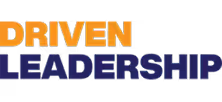Conflict Resolution Training in Long Beach, CA


Leadership Training Conflict Resolution Training in Long Beach, CA
Strong leaders in Long Beach need more than technical skill: they need the ability to navigate difficult conversations and resolve disputes so teams stay focused, compliant, and productive. Leadership Training Conflict Resolution Training in Long Beach, CA equips managers, supervisors, and team leads with proven frameworks, hands-on practice, and implementation techniques tailored to the region’s workplace realities—from port logistics and hospitality to education and creative industries. This page explains what the training covers, common local issues it solves, how it works, and practical guidance for managers wanting long-term results.
Why conflict resolution matters in Long Beach
Long Beach organizations operate in a unique mix of high-pace operations (port and logistics), customer-facing service (hotel, retail, dining), and public institutions (universities, municipal services). That mix creates frequent friction points: shift handoffs, cross-department priorities, cultural and language differences, and compliance or safety concerns. When leaders lack structured approaches to address conflict, problems escalate into lower morale, missed deadlines, safety incidents, or formal grievances. Effective conflict resolution training reduces these risks and strengthens team cohesion across diverse local workforces.
Common conflict types we address in Long Beach workplaces
- Interdepartmental tension between operations and customer service (e.g., logistics delays affecting guest experience)
- Performance and accountability conversations with shift-based teams or remote/hybrid staff
- Cross-cultural miscommunication and language-related misunderstandings
- Union-management negotiation dynamics and grievance handling (sensitive, procedural)
- High-pressure conflict in athletics, education, or event teams where time-critical decisions matter
Core program components and frameworks
This training blends conceptual frameworks with experiential practice to move leaders from theory to repeatable skill.
- Assessment & diagnosis: Quick workplace scans and conflict mapping to identify recurring patterns and escalation points in your organization.
- TKI and interest-based negotiation: Understand conflict styles (competing, collaborating, avoiding, accommodating, compromising) and learn how to shift toward interest-based outcomes that preserve relationships.
- Structured conversation framework: A step-by-step script for difficult conversations: context, impact, expectation, exploration, and agreement—delivered in clear language and adaptable to multilingual teams.
- Active listening and emotional regulation: Techniques for de-escalation, reflective listening, and staying solution-focused when emotions run high.
- Mediation techniques: Neutral facilitation tools, caucusing options, shuttle mediation, and how to structure a mediated agreement that is durable and trackable.
- Role clarity and follow-through: Tools for documenting decisions, accountability checkpoints, and cascade plans so agreements translate into changed behavior.
Role-play and experiential exercises
Practical rehearsal is the heart of lasting skill change. Exercises are realistic, scenario-based, and tailored to Long Beach contexts.
- Fishbowl mediation: Two participants mediate while others observe and give feedback, focusing on neutrality and question techniques.
- Hot-seat difficult conversation: Leaders practice a scripted performance review or safety talk with shifting constraints (e.g., language barrier or union presence).
- Reverse-role empathy: Participants temporarily adopt the other party’s role to uncover hidden interests and assumptions.
- Live feedback loops: Short, repeated practice rounds with immediate coaching to build muscle memory for key phrases and techniques.
Mediation and dispute resolution process
When internal escalation is necessary, leaders learn a repeatable mediation process:
- Preparation: Private intake meetings to understand interests, boundaries, and non-negotiables.
- Ground rules: Set neutral expectations for respect, turn-taking, and confidentiality.
- Framing and interests: Surface underlying needs rather than positional statements.
- Option generation: Brainstorm multiple solutions without immediate judgment.
- Agreement and documentation: Create clear action items, owners, and timelines.
- Follow-up: Scheduled check-ins to confirm adherence and adapt solutions if needed.
Implementation advice for Long Beach managers
- Start with the small wins: Apply the conversation framework to routine one-on-ones and shift handoffs before tackling larger disputes.
- Make language and culture explicit: Use translators where needed, and practice scripts that account for direct versus indirect communication styles common in multicultural teams.
- Document and measure: Record agreements and track resolution timelines. Aim for measurable goals (e.g., reduce escalations by 30% or resolve 75% of disputes within two weeks).
- Embed in routine processes: Add a brief conflict check-in to weekly team huddles or daily operations briefings to keep issues surfaced and addressed early.
- Coach on the job: Pair managers with peer coaches or facilitators for in-the-moment feedback after real conversations. Short post-conversation coaching sessions are more effective than occasional long workshops.
- Address systemic causes: Use conflict patterns discovered during training to inform process changes—staffing adjustments for peak port hours, clarified SOPs for customer service handoffs, or updated onboarding around culture and language expectations.
Outcomes and how you’ll measure success
Leaders who complete this training can expect tangible improvements in team effectiveness and workplace culture:
- Faster, lower-friction conflict resolution and fewer formal grievances
- Stronger psychological safety and willingness to speak up about problems early
- Increased trust and cross-functional collaboration, reducing rework and service failures
- Higher retention and engagement among front-line and supervisory staff
- Clearer documentation and accountability leading to improved operational reliability
Suggested metrics to track: time-to-resolution, escalation frequency, employee engagement pulse scores, turnover in key roles, and safety or customer incident rates.
Sustaining skills over time
Conflict resolution is a practiced skill, not a one-time event. Ongoing reinforcement keeps outcomes durable:
- Regular micro-practice sessions (15-30 minutes) embedded in team meetings
- Leadership coaching pulses focused on recent conflicts and follow-ups
- Refresher workshops that introduce advanced scenarios (union negotiation, multi-party mediation)
- Integrating resolution competencies into performance reviews and leadership scorecards
This training builds leaders who can hold tough conversations with clarity and care, turning conflict from a drain into a source of creative problem solving for Long Beach organizations.

